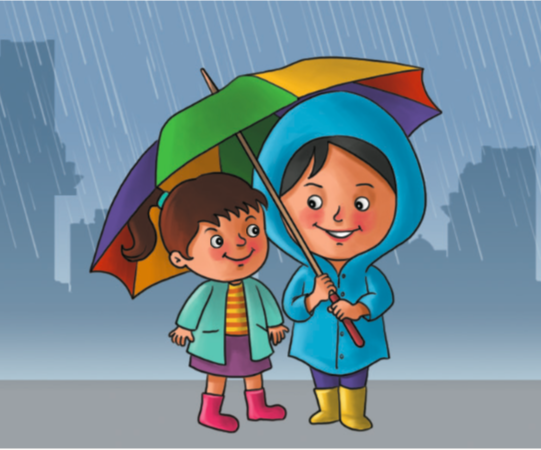
Empathy is more than just a feeling; it's the ability to understand and connect with others' emotions—whether they are humans, animals, or even fictional characters. It involves putting oneself in another’s shoes, seeing the world from their perspective, and understanding their situation. Teaching empathy to children plays a critical role in emotional development, intelligence, and the strength of society as a whole.
How Empathy Shapes a Child's Growth
When we raise children to be empathetic, we are helping them develop an essential life skill that will influence not only their personal growth but also the way they interact with the world. Here's how empathy fosters positive development:
- Understanding Others’ Emotions: By strengthening a child’s ability to recognize and interpret others' emotions, they grow into adults who are more compassionate and emotionally intelligent.
- Awareness of Impact: When children understand how their actions affect others, they become more conscious of their behavior and reactions, helping them build stronger, more positive relationships.
- Respecting Different Perspectives: Encouraging children to exchange ideas and listen to others helps them appreciate diverse viewpoints, promoting open-mindedness and tolerance.
- Building Friendships: Empathy helps children form deeper connections with their peers. The ability to care about others strengthens bonds and leads to lasting friendships.
- Promoting Kindness and Sharing: Empathetic children are more likely to do good deeds without expecting something in return. They share more, think less selfishly, and are eager to help those in need.
- Standing Against Bullying: Empathy empowers children to stand up for those who are being bullied. By understanding the pain and fear of others, children are more likely to protect and support their peers.
- Encouraging Forgiveness: When children understand why someone might behave in a certain way, they are more inclined to forgive, fostering a culture of acceptance and understanding.
Role of Teachers in Fostering Empathy
Teachers play a vital role in developing empathy in students. By modeling empathetic behavior and creating an environment where kindness and understanding are celebrated, teachers can cultivate emotional intelligence in their classrooms. Here are some ways they can help:
- Modeling Empathy: Students learn best by example. Teachers who show empathy in their interactions with students and others encourage similar behavior.
- Exposing Students to Diversity: Teaching about different ethnicities, abilities, and lifestyles can help students appreciate the various ways people express themselves, promoting acceptance and reducing prejudice.
- Using Real-Life Events: Discussing current events or situations from students’ lives helps them connect to real-world examples of empathy. This makes the concept more tangible and relatable.
- Acknowledging Empathetic Behavior: Recognizing and praising students for acts of kindness or understanding—like comforting a classmate or helping someone in need—reinforces the importance of empathy in everyday life.
Examples of empathetic behavior in the classroom include:
- Standing by others during difficult times.
- Offering a listening ear to a classmate who's upset.
- Helping a classmate without expecting anything in return.
- Defending someone who is being bullied.
- Sharing food or resources with classmates.
- Being kind to animals and showing compassion for all living beings.
Encouraging Empathy in Daily Life
To nurture empathy, teachers and parents must practice active listening. When children share their feelings, it's essential to listen without interrupting or offering solutions right away. Simply listening can be a form of emotional support that children need.
It’s also crucial to guide children to talk about their feelings without fear of ridicule. A safe, non-judgmental space allows children to express themselves freely, leading to better understanding and stronger connections.
Empathy Traits to Encourage
Certain traits naturally align with empathy and should be encouraged in children:
- Respect
- Kindness
- Forgiveness
- Compassion
- Sensitivity
- Altruism
- Humanity
- Generosity
- Benevolence
Instilling these traits helps create a more compassionate, understanding, and inclusive community.
Overcoming Obstacles to Empathy
Unfortunately, not all environments nurture empathy. Traits such as cruelty, selfishness, jealousy, hatred, and anger can create barriers. It’s crucial to counter these obstacles by promoting empathy, kindness, and understanding at every opportunity.
Teaching empathy to children and students is a foundational step toward a more compassionate world. When children learn to understand and care for others, they grow into adults who contribute positively to society. Whether at home or in the classroom, nurturing empathy is key to developing emotional intelligence, fostering connections, and combating negative behaviors like bullying. By modeling and encouraging empathy, we can all help raise a kinder, more empathetic generation.